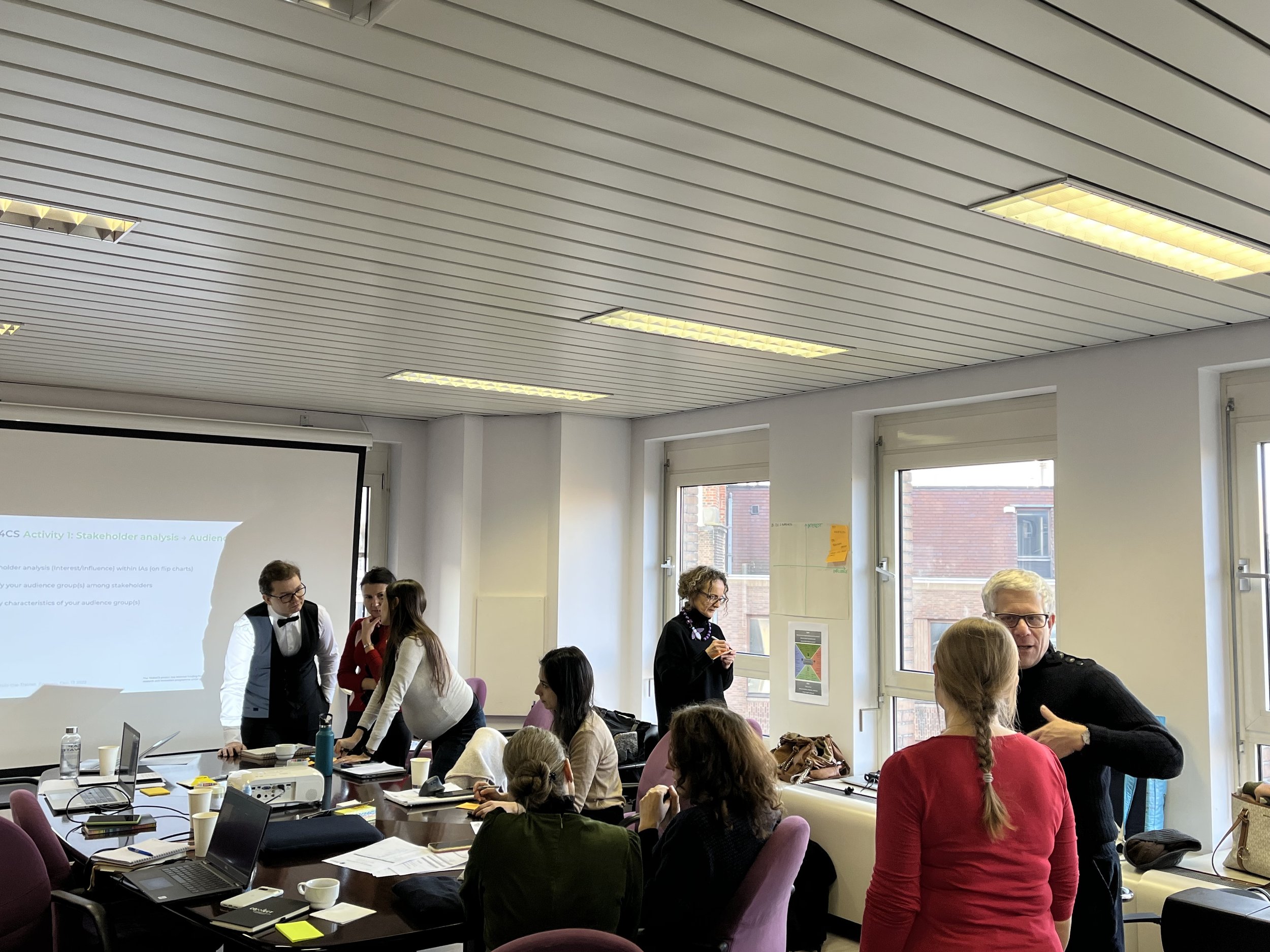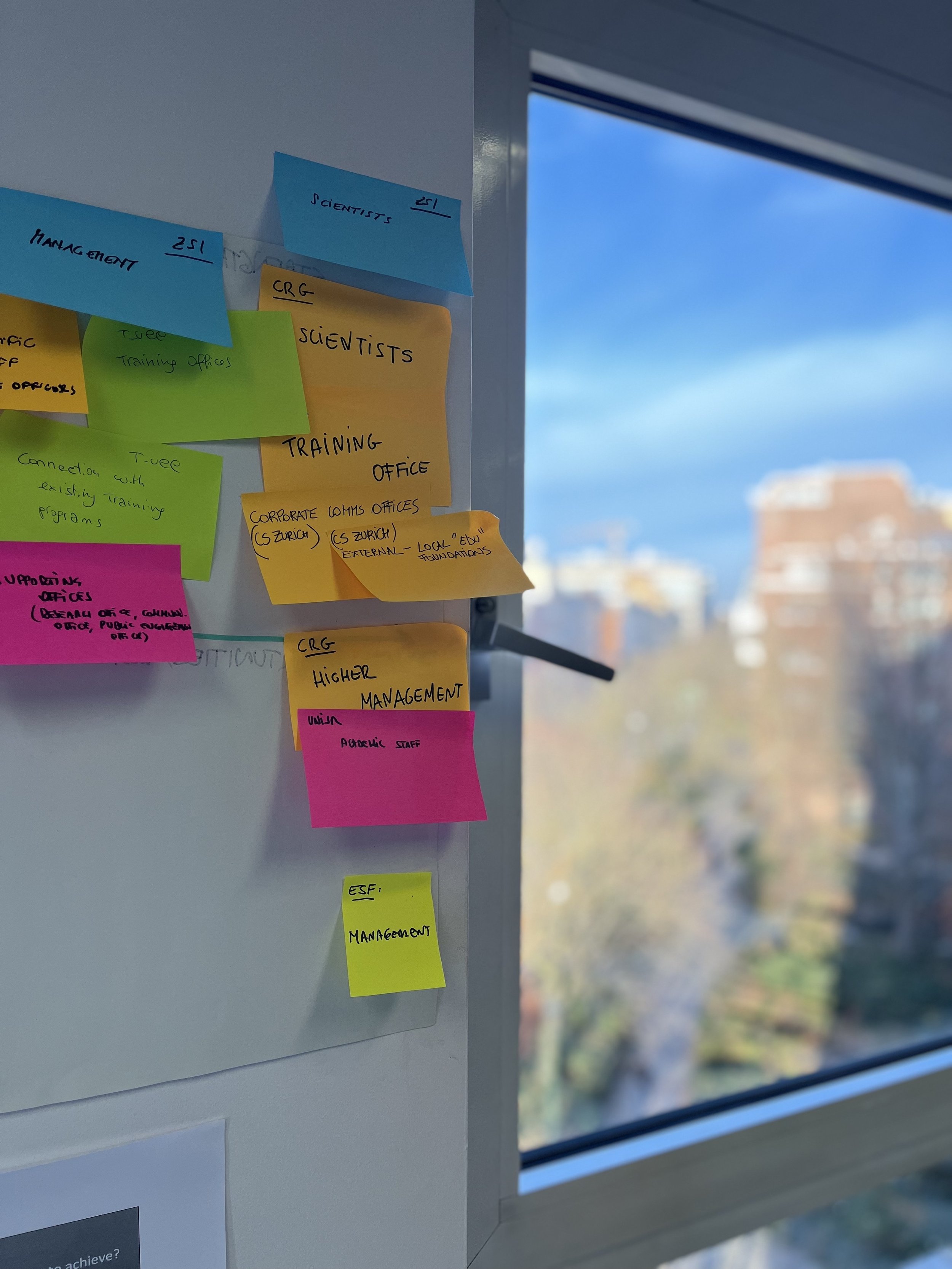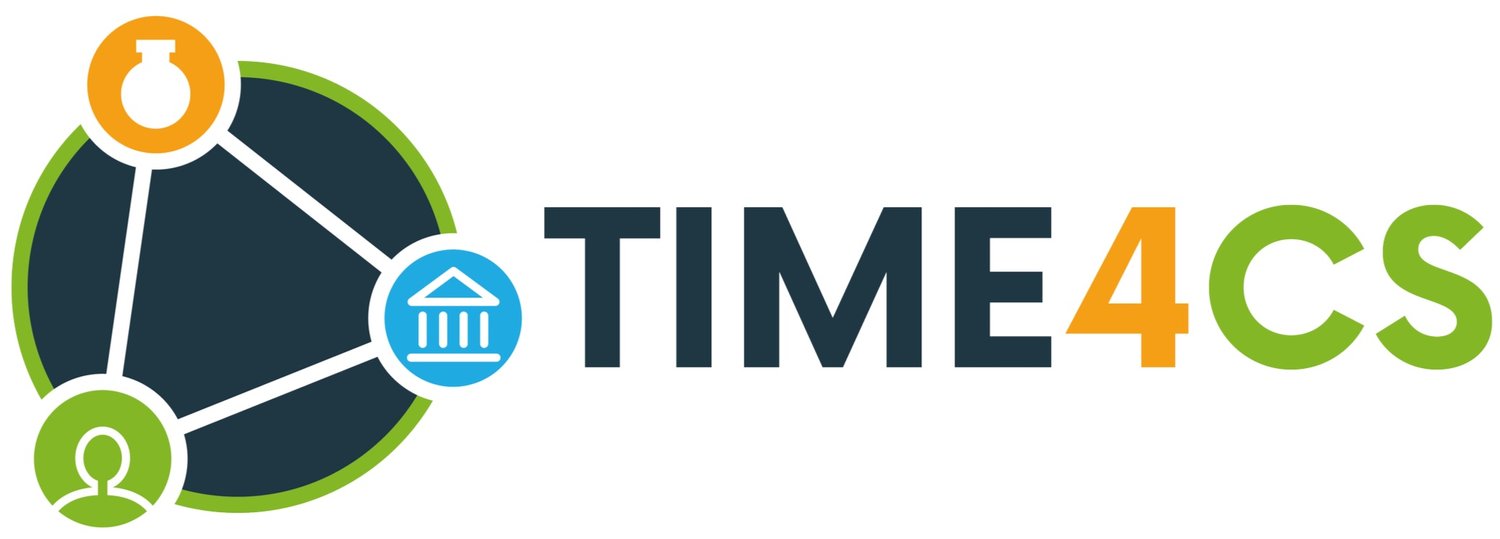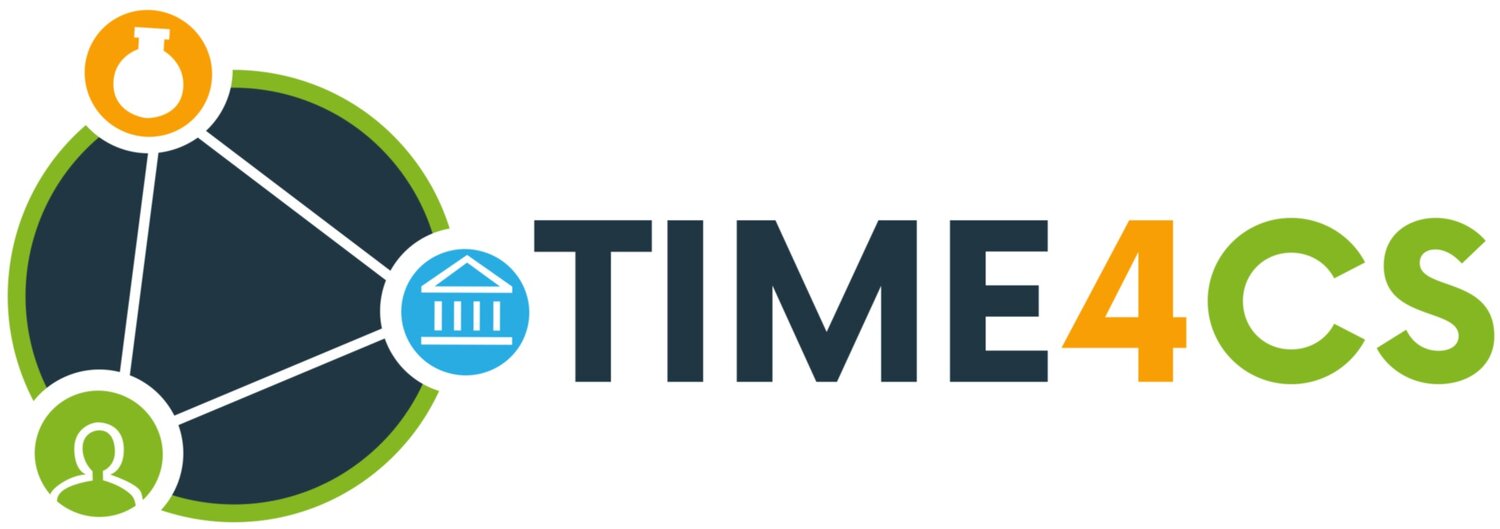Train-the-trainers to support institutional change towards citizen science
Embedding training programs for citizen science in the implementing institutions, the TIME4CS project employs the train-the-trainers (TTT) methodology. TTT is a cascade methodology, aimed at equipping facilitators or trainers with the skills necessary to train others in the institution. Before the General Assembly in December 2022, we conducted a TTT workshop for the implementing partners in the project. After the workshop, the Implementers responded positively to the on-site evaluation performed by impact partner ZSI – Center for Social Innovation. They also acknowledged that more training and more elaborate training programs were needed before they would be able to do their own versions of the training programs at their respective institutions.







The learning objectives of the TTT were:
Conduct stakeholder and audience analyses for training design purposes
Use the TIME4CS Training Modules (TMs) to design institutionally relevant training programs
Plan and design customized training programs based on the available TMs and audience analysis in terms of learning objectives, content, activities, assessment, and intended outputs
The TIME4CS TTT workshop included three sessions. The workshop focused on Implementers, and the other partner organizations, frontrunners and impacts partners, assisted and encouraged the Implementers in their work.
The first session involved identifying stakeholders and potential audiences. We introduced the basics of stakeholder analysis and Empathy Mapping, developed by Dave Gray, co-founder of strategy consultants Xplane. Empathy Mapping is a visualization technique used to gain insights into a target group or audience by reflecting on what they think or feel, hear and see, and say and do. The outcomes of the session were maps of stakeholders and audiences for each implementing institution.
The second session revolved around the training modules described in deliverable 4.1 (available on Zenodo). During the session, the Implementers customized selected training modules for their audiences that were identified in the first session. We introduced the Logic Model framework as a way to guide participants in their thinking about resources, activities, outputs, outcomes and eventual impacts of their training. All Implementers produced a Logic Model chart for up to two training modules.
We organized the third and final session as a Fishbowl conversation between the Implementers. As a starting point for the discussion, we asked all participants to conduct a SWOT (Strengths, Weaknesses, Opportunities, and Threats) analysis of the implementation and embedding of training programs at the implementing institutions. This included identification of institutional barriers to running the training programs and making them sustainable. In the Fishbowl conversation, the representatives of implementing partners shared reflections on the training modules and ideas for the sustainability of training in citizen science.
Author: By Kristian H. Nielsen (AU)
Gitte Kragh (AU)

